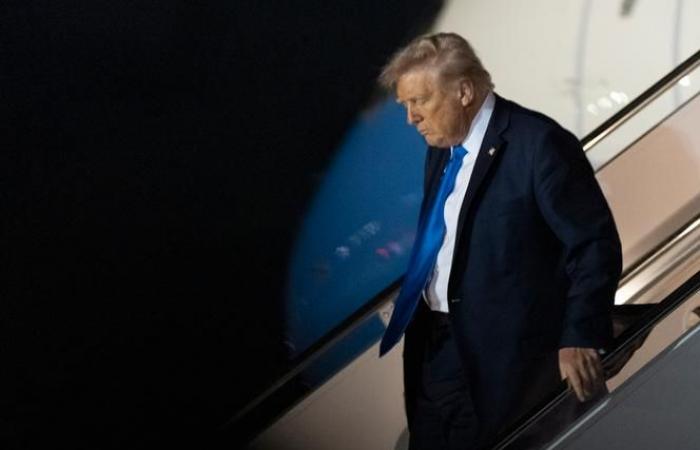
Lhe first steps of a freshly elected or re -elected president are traditionally marked by what political commentators qualify as a “state of grace”, a period deemed to be blessed, where strong popularity, mixed with the promise of actions and change, makes it possible to move forward on the reforms without being sanctioned by an opinion still convinced, nor hinder by still bloodless opposition.
Read later
We already knew that this state of grace was as narrow as it was fragile, that it tended to shorten, that it only lasted a few months, sometimes just a few weeks. The Trump case is symptomatic of this accelerated degradation of confidence: with 43 % popularity on April 28, against 49 % in the aftermath of his election, he has been the most unpopular president in the country for eighty years.
-But the most interesting phenomenon is found elsewhere. In an astonishing movement of inverted mirrors, this state of grace which the American president seems private – recognize that he does not make much effort to benefit from it – reflects on his opponents or his international opponents. The curves are eloquent, in at least three countries.
You have 76.5% of this article to read. The rest is reserved for subscribers.





